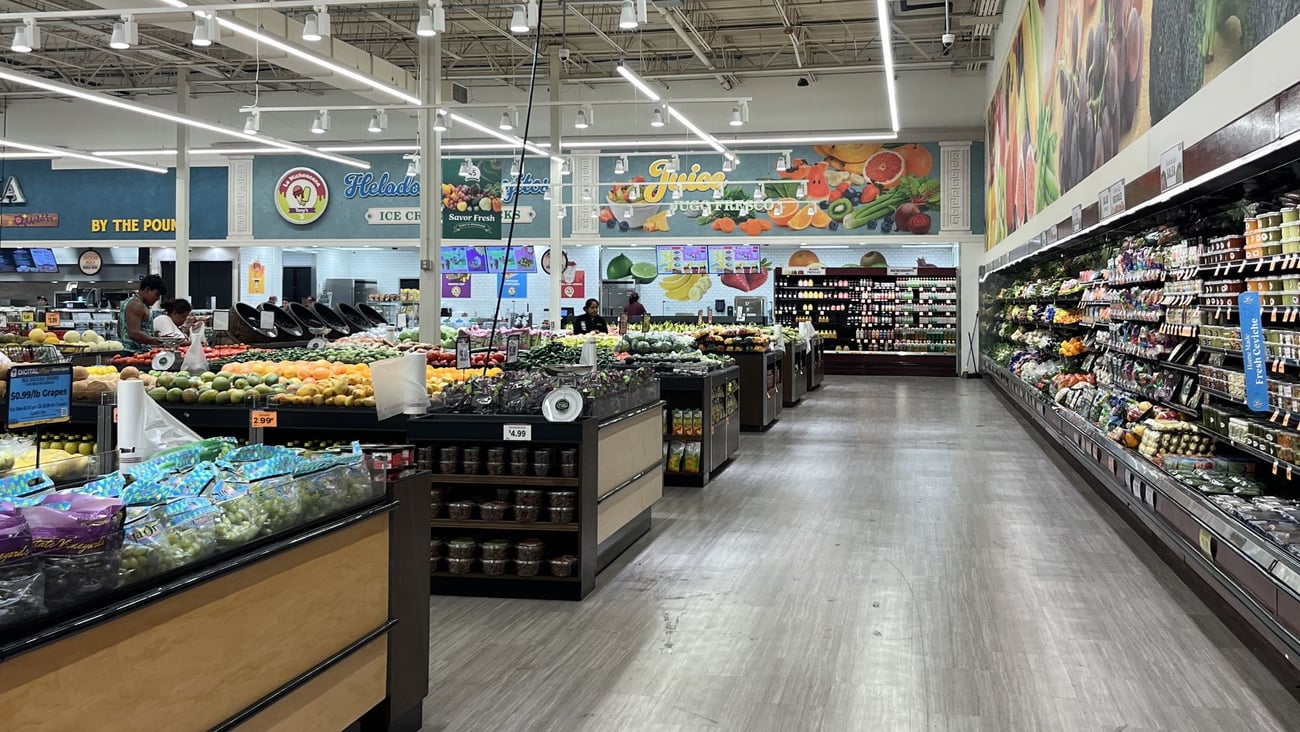EXCLUSIVE: How Tony’s Fresh Market Is Guided by Culture
Tony's Fresh Market, which has been known for its culturally relevant assortment since it was founded in 1979 by Italian immigrants Tony Ingraffia and Domenico Gambino, unveiled a remodeled store in the northern Illinois city of Waukegan on Aug. 28. Today the banner is part of Heritage Grocers Group and lives up to that heritage billing by carrying a wide variety of products that are needed and wanted by the communities it serves.
Progressive Grocer recently visited the refreshed store in Waukegan and later spoke to Frank Ingraffia, Tony’s son, who is now CEO of his father’s namesake market.
Progressive Grocer: This is exciting news for the Waukegan community. What are some highlights of this revamped store, in your opinion?
Frank Ingraffia: We’re excited for the grand reopening. The biggest difference for customers who have shopped at this store before is that they will see new features like a tortilleria – a nice offering that few people are doing – and a La Michocana section with ice cream and Jugo Fresco area with fresh juices. There is also a Spanish-style La Cocina and a taqueria.
[RELATED: What Grocery Brands Are Most Popular Among Hispanic Shoppers?]
For the overall layout, we really opened up the store and brightened it up, both through décor and lighting. You walk into a big produce department that is expansive and inviting, and we focused on sight lines so you can see wall to wall.
PG: How does this location in Waukegan, like your other stores, serve customers in the neighborhood?
FI: It speaks to who Tony’s has always been and we want the store to reflect that. You will always have base offerings, including pantry items, and other items that you can’t find at different regional or national competitors. A major chain wouldn’t be doing a taqueria in their store, because it’s too difficult to replicate over thousands of locations. We can really win because we have those kinds of things that give people extra reasons to patronize our stores. We are doubling down on that.
PG: The foods you carry are meaningful to people.
FI: It’s huge, especially for different ethnicities, whether it’s Hispanic, Indian, Italian or whatever it might be, gatherings are centered on food. It’s about the main meal people have in their homes and events, whether it’s a birthday, quinceañera, wedding or something else. Taking it a step further, people are also looking for nostalgic foods they grew up on. If they are used to having a skirt steak done a certain way, they can get 20 pounds of it and invite 40 or 50 people to their home. That goes a long way for customers and it’s another way to add value. Everyone has a gallon of milk and price matters, but what else do you have that can attach to memories of childhood?
PG: How does this store also align with your parent company, Heritage Grocers Group, after that acquisition a few years ago?
FI: Our histories coincide well and now we are leveraging it even more. The Cocina is taking learnings from the other banners. It’s something new for Tony’s and we can bring it here to the Chicago market and still keep the Tony’s look and feel.
PG: Do your associates get involved and give feedback on offerings, too?
FI: They are the first line of opinions to say ‘This is good’ or ‘What is the issue – is it something too big, too small, too expensive or too cheap?’ If you are doing something for a Mexican customer, they might want this, and if you are serving a Venezuelan customer, they might want that. We hire from within the communities we serve and they are in the store every day, training and working with products.
PG: How is the evolution of Tony’s and this industry personal for you, Frank?
FI: I grew up in the grocery business, my whole life. My dad started the company and I took over the business a few years ago. We continue to leverage the Tony’s name with HGG and grow all three banners. The grocery industry has seen many changes, and there always seems to be some macrocycles and small fads that we try to capture. A few years ago, for example, there wasn’t a large prepared food offering in the store, but as consumers go more to convenience, they are looking for something like that. It’s giving people other options for feeding themselves, especially at dinnertime and if they have had a long day.
Also, within convenience, you see some generational changes. First-generation Hispanic consumers may never buy guacamole made in store because they think ‘My recipe is absolutely perfect.’ For them, it will be about buying the ingredients, the avocados, the lime, the tomato, the spices. For their children in the second and third generations, they may say, ‘Tony’s make great guacamole, so why don’t I just pick it up?’
PG: You have some talented people on staff who make those kinds of foods in-house, right?
FI: We still have big service cases in deli, bakery and meat department and that’s another reason why people patronize our stores. If you get away from that, you can lose touch with your customer base. And if they see you care there, they can see that it’s important in the rest of the operation. Every detail matters.
















